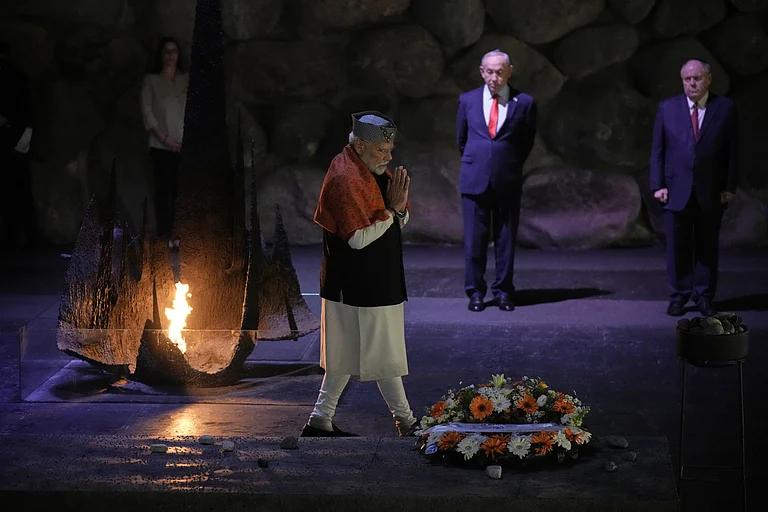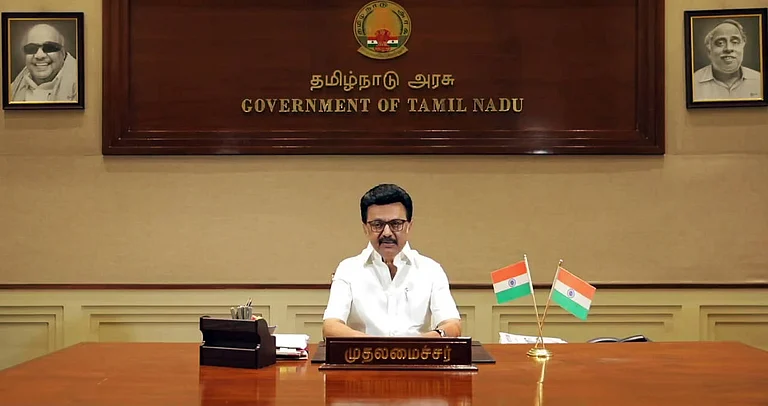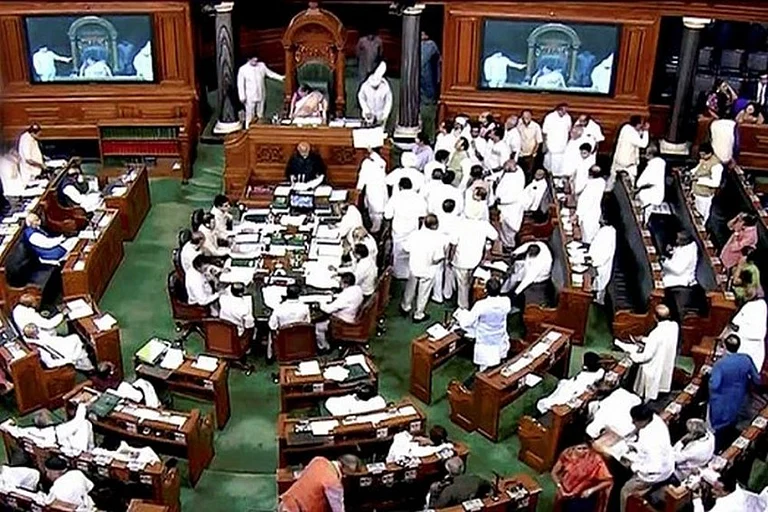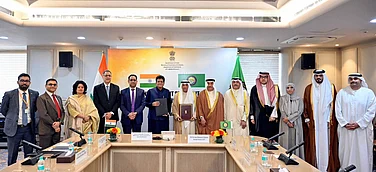Prime Minister Narendra Modi declared today that Lal Krishna Advani, the seasoned BJP leader, will be bestowed with the prestigious Bharat Ratna, the highest civilian award in India. Describing the announcement as an "emotional moment," the Prime Minister highlighted Advani's stature as one of the most esteemed statesmen in contemporary times. Modi emphasised the monumental role played by LK Advani in contributing to India's development.
A pivotal figure in Indian politics, Lal Krishna Advani, born on November 8, 1927, in Karachi, played a crucial role in shaping the political landscape, particularly within the Bharatiya Janata Party (BJP). Advani graduated from the D.G. National College in Hyderabad and pursued law at the Government Law College in Bombay (now Mumbai). His journey from Karachi to becoming a stalwart in Indian politics is a testament to his enduring impact and the evolution of the BJP under his leadership.
His political journey spans several decades and is characterized by his association with the Rashtriya Swayamsevak Sangh (RSS) and his instrumental role in the Ram Janmabhoomi movement. Advani, a founding member of the BJP, significantly contributed to the party's growth, solidifying its position as a formidable force in Indian politics. His influence became particularly evident after the BJP's formation in 1980. Notably, Advani served as the deputy prime minister of India from 2002 to 2004, showcasing his prominence within the political arena.
1941-70: Early Activism in RSS & Jana Sangh
At the age of fourteen in 1941, Lal Krishna Advani joined the Rashtriya Swayamsevak Sangh (RSS), swiftly rising to the position of pracharak (full-time worker). He assumed leadership as the secretary of the Karachi unit in 1947, actively contributing to the organization's activities. Following the partition of India, Advani continued as a pracharak in Rajasthan, operating across various districts until 1952. Advani's journey into formal politics commenced in 1951 when he became a member of the Bharatiya Jana Sangh (BJS), founded by Syama Prasad Mookerjee in collaboration with the RSS. He held key positions in the party's leadership, serving as the secretary in Rajasthan and later becoming the president of the Delhi unit. In the mid-1960s, he assumed leadership roles in the Delhi Metropolitan Council (DMC), ultimately becoming its chairman until 1970.
1971-80: Parliament Entry, From Jan Sangh Leader to Cabinet Minister
Advani's political career transitioned to the national stage in 1970 when he secured a seat in the Rajya Sabha from Delhi. His ascent continued as he was elected as the president of BJS in 1973 during the Kanpur session. Re-elected to the Rajya Sabha from Gujarat in 1976, Advani played a significant role in the Janata Party formed in response to the national emergency. The party's victory in the 1977 elections saw Advani appointed as the Minister of Information and Broadcasting in the Morarji Desai-led government. However, the government's premature dissolution in 1980 marked a shift in Advani's role to the leader of the opposition in the Rajya Sabha.
1981-89: Formation of BJP and Early Years
In 1980, Advani and former Jana Sangh members founded the Bharatiya Janata Party (BJP). Elected to the Rajya Sabha from Madhya Pradesh in 1982, Advani played a crucial role in shaping the BJP's ideology. The party's foray into Hindutva was evident, and under Advani's leadership, it became the political face of the Ayodhya dispute, gaining substantial support in the 1989 elections.
1990-2004: Rath Yatra and Rise of BJP, Advani as Home Minister and Deputy Prime Minister
The 1990 Ram Rath Yatra marked a significant event in Advani's career, aimed at mobilizing support for the Ram Janmabhoomi movement. The BJP's success in the 1991 elections solidified its position, with Advani leading as the opposition leader in the Lok Sabha. However, the demolition of the Babri Masjid in 1992 brought legal challenges for Advani, although he was acquitted in 2020. The BJP's rise continued, and Advani became the Deputy Prime Minister in 2002. The late 1990s saw Advani's pivotal role as the Home Minister in the BJP-led National Democratic Alliance (NDA) government. Despite its brief tenure, the NDA returned to power in 1999, and Advani secured his fourth term in the Lok Sabha. His responsibilities expanded as he assumed the position of Deputy Prime Minister in 2002.
Despite the political success that the Ram Janmabhoomi movement brought to the BJP, Advani found himself sidelined within the party in the subsequent years. One significant factor contributing to his marginalization was the emergence of a new generation of leaders, including Narendra Modi, who rose to prominence within the party. The younger leaders were perceived as more dynamic and aligned with the changing political landscape.
2004-13: Leader of Opposition and a Dream of Prime Ministerial Candidacy
The 2004 elections marked a setback for the BJP, leading to Advani assuming the role of Leader of Opposition. With Vajpayee's retirement, Advani took charge of the BJP in 2005 but faced internal criticism. Subsequently, he stepped down as party president in 2005, allowing Rajnath Singh to take over. In 2009, despite winning his sixth term, Advani's ambition to become Prime Minister went unrealized as the BJP lost to the Congress-led United Progressive Alliance. After the defeat, he handed over the Leader of the Opposition position and was elected as the working chairman of the National Democratic Alliance in 2010. His political journey continued, and he played a role in the Marg Darshak Mandal of the BJP until later years.
One of the defining moments in Advani's political journey occurred in 2013 when the BJP announced Narendra Modi as its prime ministerial candidate for the 2014 general elections. Advani, who had expressed reservations about Modi's candidature, was sidelined, and Modi emerged as the face of the party. This marked a turning point in Advani's career, symbolizing the transition from being a stalwart leader to a marginalized figure within the party he helped build.
2014 and Further
Political maneuverings often come with their own set of ironies, and few have felt the twists of fate more closely than Lal Krishna Advani, a stalwart of the Bharatiya Janata Party (BJP) and former Home Minister and Deputy Prime Minister of India. The stark reality of his exclusion from the BJP's 2019 Lok Sabha nominee list for Gandhinagar in Gujarat, a constituency he had long represented, serves as a glaring signal that the party, which he meticulously constructed over decades, now perceives him more as a burden than a source of inspiration. The irony lied in the fact that it was Advani who painstakingly reconstructed the BJP, piece by piece, especially from 1984 when the party faced a dismal tally of two seats in the Lok Sabha, transforming it into an unassailable force by 2014.
While age may be a factor, as Advani was undoubtedly past his prime, physically and mentally demonstrating no signs of illness or fatigue, the real crux lay in the widening generation gap between him and the current crop of party leaders like Narendra Modi and Amit Shah. These leaders, who owed their political existence to Advani's mentorship, seemed eager to sever their filial bonds with the patriarch, displaying impatience that contradicts India's cultural tradition emphasizing reverence towards family elders as the RSS members themselves call it a family.
The greater irony is that most of the BJP leaders today owe their political ascent to Advani, yet they exhibit an eagerness to distance themselves from their political progenitor. This paradox is especially tragic given Advani's pivotal role in leading the BJP through adversities and ignominy to become India's foremost political force. His innovative use of the motorized Rath Yatra to galvanize support for the construction of the Ram Mandir at Ayodhya, while controversial, marked a turning point in contemporary Indian history, setting the political agenda since the early 1990s and continuing to shape the discourse today.






















